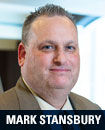Finding incremental savings is a perennial challenge for
managers of mature travel programs, but Lockheed Martin global travel and event
services manager Mark Stansbury in June 2012 implemented an automated process
for tracking and reusing unused nonrefundable air tickets to achieve just that.
Prior to the initiative, the Bethesda, Md.-based aerospace,
defense and security contractor would track and reissue tickets when an
individual employee would cancel and later rebook. But that only addressed part
of the problem. Often, he said, that ticket belonged to "a traveler who
travels maybe once or twice a year, and the ticket would go beyond the one-year
limit and just expire."
 That was money left on the table, in his view. To get it
back, Stansbury used "negotiating and leverage" to persuade preferred
carriers to agree to waive name-change restrictions and, for a fee, allow the
company to apply a credit from one employee to another.
That was money left on the table, in his view. To get it
back, Stansbury used "negotiating and leverage" to persuade preferred
carriers to agree to waive name-change restrictions and, for a fee, allow the
company to apply a credit from one employee to another.
He also enlisted preferred travel agency Travelocity
Business to automate the process.
As a major government contractor, Lockheed faced additional
challenges in implementing the system. Stansbury said, "We have something
like 3,800 contracts with the government and the finance people internally at
Lockheed were concerned about if one traveler was on contract A and the
exchange is on contract B, how are we going to exchange those funds?"
After all, it wasn't just travel costs for Lockheed at
stake, but "taxpayer money" as well, he said.
Now, Stansbury said, "Once it gets within 90 days, an
email is sent to the traveler that says, 'if the ticket isn't used within the
next 30 days, you're going to lose it.' Then it goes into a pool, and if
certain circumstances line up, we use that for any employee and do the name
change and all that."
While many managed travel programs have implemented
mechanisms to identify and alert travelers to the looming expiration of
nonrefundable tickets, few have automated and formalized the process to the
extent as Lockheed, travel management company sources and airline consultants
earlier this year told Travel Procurement.
"It's pretty much an automated process," Stansbury
said. "We're already seeing huge dividends on it because almost all our
unused nonrefundable tickets are getting used now. Of course, you're not going
to see 100 percent."
Yet, with roughly 90 percent of the company's air travel on
nonrefundable tickets, he said the program to date has saved about $500,000.
This report
originally appeared in the Sept. 2, 2013, edition of Business Travel News.